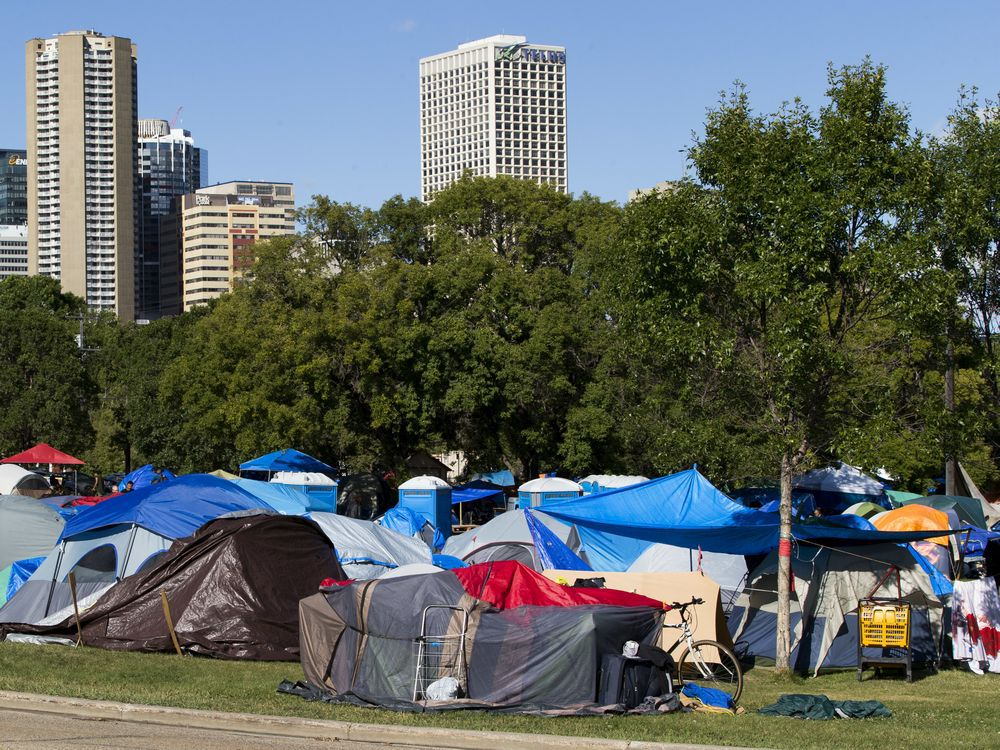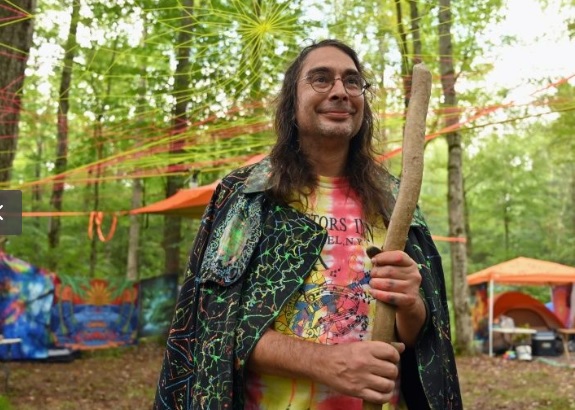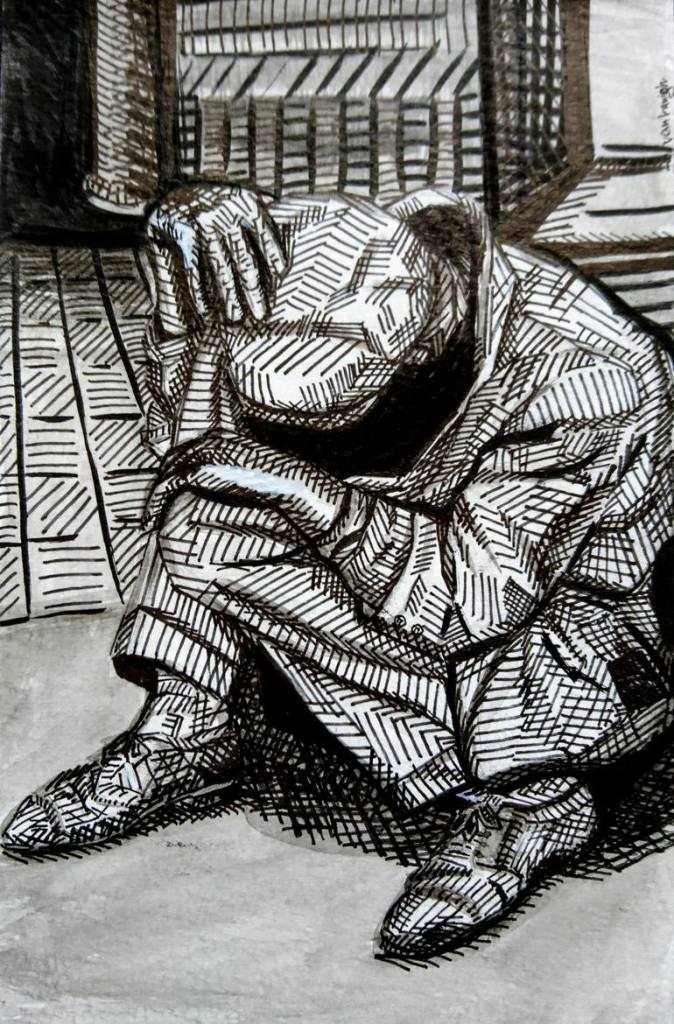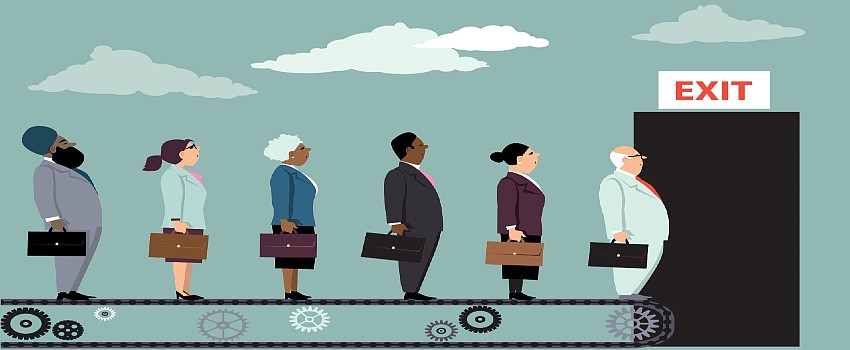
(Note: Anytime I talk about one our friends who are unhoused, I have changed their names and the details of their circumstances. It’s ALMOST fiction: they are composites of many different people. I did so to protect their identity, their dignity, and to bring together many stories. As well, it’s for my own mental health and grief.)
(Also, Drug Poisoning is interchangeable with Drug Overdosing. As well, I lump all Harm Reduction efforts together: sites for safe usage, handing out clean needles and pipes, giving out proper medical equipment like straps and swabs, supervised usage, using Narcan to revive those who have overdosed, etc..)
The Mustard Seed, a few weeks ago, was hosting a group of teenagers who stayed with us for a week, to learn about what can be done to eliminate poverty in our city.
They invited me, as one of the Community Chaplains, to sit on a panel and answer questions from the teens.
The first question was easy, kind, and a bit of a softball: “What do you love about your job? And what do you hate about it?”
I answered the first, “I love people getting healthy, people getting sober, and people getting better. When people get better, I believe, they become a lot more of themselves.”
The worst? This is where I dropped the bomb: “I’m tired of people dying.”
At that moment, I was on the fifth week of memorials for someone who had died. Most of the deaths were drug overdoses; some were health complications due to drug usage. Most were either fentanyl or crack.
When I dropped this bomb, most of the teens laughed. And then the rest of the panel agreed, “Yup, that’s it. It’s all of the deaths, the ODs.”
Later that week, they were visiting a Motel 6 we converted into supportive housing. A woman, a guest of one of our residents, used and overdosed. Chest compressions were used on her for 45 minutes, first with the staff and later with the EMTs. The kids watched the stretcher be wheeled out with a medic performing CPR on her.
As honest as my answer was it also really killed a lot of the joy in the room. Like a black hole in the cosmos, I sucked out all the light in the universe.
Sorry and I might continue with this particular darkness.
Before I worked with the homeless, I imagined all drug users kind to be the same.

Let’s say you grew up with a cousin, Larry, that smoked cannabis most of his life. In the 1980’s, he smoked and stayed clear of the police. He had friends who were arrested for pot and spent time in jail, their lives ruined. Larry had the miracles: when police would come to shake down a party, they would check everyone’s pockets except his. In the nineties, he fell in love and got married and grew marijuana with a grow light in his closet. He got degrees and a great job, started a family.
He could quit for family events. And when his kids were babies, he didn’t smoke for a few years. But then, always, he came back to it. He never was high when he would visit your kids, but he also never quit.
Larry is now in his fifties and relishes in the present as it is now legal and fine and part of the economy.
For drug users, I always thought they were like my fictional Cousin Larry. If he had to, he could quit…as long as he wanted to. He just needed a good reason to want to and he never met such a reason.
Now, there are different types. I know friends who every atom in their body is screaming for a fix and cannot concentrate until high. I know of many who I could offer a million dollars to be sober for 5 hours and they wouldn’t make it. I know some folks who come to our shelter, knowing they cannot use and will go to the washroom to light up only to be escorted out.

I had a friend who overdosed during the night, was revived, used again, overdosed, and then sat outside of our shelter for the whole night. In the morning, I drove up and my friend was waiting for me. “Help me! Pray for me! I can’t quit! I’m going to die and I can’t quit!”
We prayed, I anointed him with prayer oil, and committed to God. One of the members of another organisation drove him to detox and they were full. He had to wait a whole week before they took him, which was seen as a miracle: normally the wait is much longer. Detox would then lead to rehab, with a possibility of sobriety.
I know of some who will never touch fentanyl or cocaine again, but have to take medication for the rest of their life to survive the shouting, screaming, and kicking their body does in need of the substance.
And how does it all start? There isn’t a single cause. Some start like Cousin Larry-because it’s fun. Most are swimming in trauma, where this becomes self-medication. Others who self-medicate do so because of undiagnosed mental health issues and they will never, ever see a psychiatrist to get a proper, medical screening. And some…it’s the air they breathe.
There was a native man whom I will call “Toby”. During one of our emergency shelters, I would offer a smudging for those who were connected to the Indigenous ways.
To be clear, I am not Indigenous. I was born in California, a descendant of European colonists. However, as an Anglican, I was able to share Cree Teaching by our Archdeacon of Indigenous Ministries. I try really hard to make it clear: I am not giving the sage, I am not leading the Smudge, it is not from me this happens, and that it is a communal event based upon the idea of sharing.
I would walk around the space and ask if anyone would like to share in the smudge. Toby would hear this and say as loud as possible, “You’re a white man! You have no business doing the smudge!”
He did this every day; it was part of our routine.
“Toby,” I would ask. “Could you join us and offer a prayer?”
“Sure,” he would say and follow me out. I would make the burning sage available, people would use the smoke for their prayer, Toby would sing a prayer, and then I would pray to Jesus. The dance worked, we would end the time with respect.
And then the next day, the routine would happen again as Toby would point out I was a white man and he would be invited to offer a prayer.
A few months later, Toby died from a fibrosis of the liver.

At his memorial, we had many from his Cree community lead the smudge before the service. We had a sharing time during the service where one of our staff, who was part of the Cree community, spoke, “Toby followed the old ways. And there is an expression when we talk about death. ‘Toby is just going on his walk. We’ll see him soon.’ It means more than just a stroll. It is who is he is.”
We ended the service by saying Toby is gone; he’s going on his walk.
Canada is great, big, and wide…it also isn’t as heavily populated as the United States or other countries. In the first four months of 2023, we’ve had 613 deaths due to drug overdosing. These numbers are smaller to cities like Los Angeles, Calcutta, or Bogota…but this is huge for our Canadian village. 93% of these deaths are from opioid use[1].
There have been seasons, working with the Mustard Seed, where there has been a death every week.
As a Chaplain, our job is to remember those who passed away. If our friends are lucky, their surviving family will have a funeral that matches their faith and tradition.
We’ll still provide a simple, Anglican memorial for those who have passed. For others, the only memorial given will be ours.
Some of our staff (I haven’t, yet) have been called in to identify a body of one of our friends who have passed. Sometimes, we’ve been called by the Medical Examiner to decide what to do with a body since a next of kin has not been found.
Someone once asked me a good question: what do we do, in Canada, when someone has passed, and no one claims the body?
Usually, they are buried in a Municipality Cemetery. Some will have their names marking the graves, many will be in a mass burial.
Sometimes, when we have a memorial, the family will come and grieve with our community members in the shelter. I remember one family brought enough fried bologna and Bannock sandwiches to feed our whole shelter. Some have left tobacco behind as a means of thanks. Others will sit in the equalizer of grief, sharing the service with those who are the homeless and addicts.

A couple of families, after the memorial, will contact me, wanting to hear about the last few weeks of their loved one’s life. If I can, I will share.
There was one fellow, Braedon, who stayed with us for four months. He came to us right after detox. He was clean and wanted a safe place, free from triggers to his addiction, and didn’twant to go to rehab because it was near the downtown area (where he used for decades).
Braedon would walk around our parking lot for hours. When I would talk to him, he always wanted to talk about Jesus. He loved prayer, he loved listening to God. Soon I got into a habit: anytime I was having a rough day, I would “counsel” Braedon and immediately feel more at peace, closer to the idea that God was on all our sides.
Braedon was sober during our times. We would ask him what he was like before our space and his answer was simple: “I was a violent man. My family was doing right staying away from me.”
We didn’t believe it. For us (everyone who came into the parking lot), he was St. Braedon, the kind and slow speaking man whose every conversation turned into the direction of God’s love.
Finally, we got him housed and he moved down the street from his son. He relapsed shortly afterwards and died of an overdose. He went back to the levels he had before sobriety and his body couldn’t handle it.
After his memorial, his older sister called me on the phone. “Just tell me: Was he alone his whole life? Was there any happiness?”
It was my privilege to introduce her to St. Braedon, his final weeks of sobriety.
In 2023, the news is reporting on a Worldwide Opioid Crisis. And yes, it’s happening everywhere and it’s serious and everywhere hurts.

But I don’t live in headlines and neither do the unhoused communities of Edmonton. Instead, we are seeing deaths of our friends, those who are our neighbours, who must be named and remembered, and those who are survived.
When someone experiences an opioid overdose, they go unconscious and quickly their life signs shutdown. You have about 5 minutes before their heart stops to administer a dose of naloxone. It can either be administered through a nasal spray or an injection- we have found injections work faster.
Once naloxone is administered, the person can revive (although sometimes it can take as much as 3-5 injections, depending upon the user). 9-1-1 is called immediately, before anything else is done. If the person has passed out from something else, the naloxone will have no effect (no damage, either).

We tell those who wake up that they need to stay put for the ambulance. Naloxone only has a short-term effect, as it counter-acts opioid’s effects. The ambulance will come, and the hospital will have better drugs to survive the overdose.
Sadly, some don’t stick around. They quickly run away, fearing that they either think they will get into trouble, or they have had some trauma related to either an ambulance or a hospital. This is bad: more than likely, our administration of Naloxone has only delayed their overdose.
If they don’t wake up, then their body shuts down and CPR is applied until the ambulance comes. It’s mere minutes until death, so having a rapid response from the ambulance is a matter of life or death. If there aren’t enough ambulances or first responders, our friends won’t make it.
This is why a lot of our friends will stick around our shelters even though they do not qualify for our services. They will be in earshot of the building because they know if there is an overdose someone will rescue them.
I also know of businesses in Old Strathcona that are trained with administrating Naloxone and will tell friends who sleep rough to seek them out if there are any problems. They do so to save lives.
I know of a church that is stocked with Narcan kits (an easy way to administer Naloxone) so that if those who use can have their lives saved. They are even considering have a sign by their window reading: DO YOU NEED A NARCAN KIT? NO QUESTIONS WILL BE ASKED.
The second sentence in their sign earns a bit of ribbing for often someone will ask for more than one and the minister will ask, “How many?” Then the punchline: I thought you said no questions!!
All these examples are what I call “Unofficial Safe Usage Sites”.
Friends of mine at Boyle Street are wanting to open official Safe Usage sites: places where users can come who can use, be monitored, and be treated if there is an overdose. These places are not used, typically, by folks like my Cousin Larry who have a home, is using recreationally, and can control his intake. These are for those who live on the street and are beginning to realise, like my friend who OD’ed and couldn’t stop, there is a problem. These sites are often stacked with resources for quitting and can offer a network of supports that lead to sobriety.
Safe Usage Sites and giving out Safe Usage Kits (a clean batch of needles, a new pipe, and proper supplies) are for the purpose of sustaining life long enough for people to get help. There are friends of mine who work with different agencies (Boyle Street, Bear Paw, Hope, etc.), who walk around our neighborhood offering food, water, and Safe Usage Kits to those not using established shelter services. When someone asks for a kit, a Narcan Kit is also offered.

On worker gave me this reasoning: “If they ask for a clean needle than I know they use. If they use, I want them to have Narcan kit because it could save their life.”
And then the speech: “Remember, have a buddy. Take turns, so someone is always sober when someone else is using. If an OD happens, call for help and use the Narcan kit. And use this equipment instead of using or borrowing materials. We don’t want you getting sick.”
When folks take these, they usually are becoming more open to the steps towards sobriety. Not always.
But offering help is its own goodness and not that it gets something else as a lure/bait.
There is pushback from opening these kinds of sites. Usually, it’s found in the argument that Official Safe Usage sites encourage drug use and drug usage will be multiplied.

In the neighborhood of Old Strathcona, where I work, drug usage is already at a fever pitch. What these sites-official and unofficial-will provide is safer usage and a lifeline to sobriety. These efforts are to save lives, extending them long enough for an addict to get the help needed and, hopeful, not die at the next OD.[2]
What is the Christian theology concerning the care for those who face a life destroying addiction, such as drugs?
(For those not of the Christian faith, you can skip this part. Or read it, I won’t boss you. Just know this is for those who believe in the Bible, the God of the Bible, and see these two as the absolute authority in their lives.)
Often times, the pushback is around three objections:
1) If we provide care for those who are addicted to drugs, drug usage will increase.
This argument is based on the “Good Neighbourhood Myth”: that if there is a facility or a homeless shelter or a drop-in centre, the neighbourhood is no longer a nice one.
I saw this thinking first in Southern California, where the main plan for homelessness was redirection: take someone camping from a “nice neighbourhood” and send them downtown. After 40 years of this plan, look at Southern California today. Did this work? No, the downtown sector became overgrown and now there is a crisis. The problems were not taken care of, rather just redirected.

And it never answered the question of Scripture, “Am I my brother’s keeper?” (Genesis 4:9). We forget the answer to this question: YES!
2) If we provide materials for safe usage, we will only encourage sin.
First of all, is drug addiction sin? Yes, addiction has sin like aspects (Romans 7), but for many it is without any choice, any volition: they must use, their bodies cannot go without unless they are treated medically (and even then, there is a chance of relapse and many are never free from the biophysical addiction [let alone the social, mental, spiritual aspects of the addiction]). I cannot say, anymore, something as quick and easy as to reduce all of drug addiction to the simple idea that it’s because of sin (I also will concede that drug addiction only exists in a fallen world).
I do believe there is enough discouragement and consequences attached to drug use to make it hard and really awful. I know of many addicts who use their entire government support paycheque on drugs. They go starving, without proper clothing, and sick…but can sustain their addiction. These are not stupid, irrational people who chose this: rather, their bodies command them to make these purchases without much input from my friends.

Addicts will use. Providing materials for safe usage (sites, nurses, Narcan kits, clean needles, proper equipment, etc.), this provides space and time for interventions to happen if there is enough support and services for sobriety.
Jesus, when walking the Earth, taught that you will know His disciples because they feed the hungry, clothes the naked, and visit the prisoners. That last one is the hardest one. What if you visit someone who is in jail who deserves to be there? Aren’t you minimizing the effect of their guilt? Or you making their crime(s) okay? Or worst, what if they get out of prison and they do another crime? Is that now on the Christian’s head? Its interesting: a Christian’s job is to just visit the prisoners, bring them food and clothing, be with them, and help…regardless of outcome or merit.
3) The Poor Will Always Be with Us.
This is kind of quoting Scriptures. Judas was being a punk and didn’t like that Jesus was giving attention to a “scandalous woman”. He would rather her suffer the consequences of her decisions and her status. Jesus rebukes him when Judas says that the money she spent on Jesus could have been used for the poor, thus saying, “The poor will always be with us.”
True, poverty is a thing in all empires.
Instead of looking at how to reduce poverty, let’s get to know people who have names and that are unhoused. Daryl, Rhonda, and Joseph are people suffering and need help: let’s care about people with names instead of trying to reduce negative headlines.

When Jesus told the story that almost got him killed (The Good Samaritan, Luke 10: 24-37), my argument was that the first two “heroes” did not see the man beaten, lay dying on the street as a person: they just saw him as a problem, an example of “everything wrong with Rome”. The Samaritan saw the man hurt and in need as a person, as one who needed help on every level.
He could have just bandaged him up and dusted his hands, proclaiming, “There! Your immediate problem is fixed!” No, he did more: he checked him into a hotel, fed him, came back for him, and made sure he wasn’t taken advantage of by the hotel owner. At some point, he might have learned the man’s name.
That man might not have deserved a hotel room or it might of encouraged him to be get beaten up again so he could get another free night from another Good Samaritan. That was the risk, but also the non-issue: the job of the good neighbour was to reduce all risks and problems within his/her purview.
All of this are side issues, though, to the foundational theology for why we need to make everything safe for those stuck in the spiral of addiction.
The foundational theology comes from one of the baptismal vow I have assumed as an Anglican Christian. In Anglicanism, baptism is seen much more of a celebration of forgiveness and justification. Rather, it is a commitment to the way of Christ, the waters we swim in and enlivened by the renewing of our commitments. It is not a works based faith: rather, a commitment to making our faith alive by following Christ.
The essential baptismal pledge is simply when I am asked, as a believer, to following in our liturgy:
Celebrant Will you strive for justice and peace among all
people, and respect the dignity of every human
being?
People I will, with God’s help.
That’s it. I have committed to respect the dignity of every human being, to strive for justice and peace among ALL people. That means every effort must be made to give people the safety, justice, peace, and dignity enough times so they can respond to the call of Christ in their lives.
Every Easter, every time someone else is baptised, every ordination service, and every other service where this appears I will be asked this of my church. And I want to answer: “I will, with God’s help.”
Anglicans like the Bible because it reminds them of the Book of Common Prayer-sorry, that’s an old joke. But about 85% of the Book of Alternative Services, where I got this from, is the Bible…including this pledge.
It’s as if, built into my worship schedule, I have to be asked, “Were you your brother’s keeper? Did you love you neighbour as yourself? Did you do everything you can to not have people die who stuck in an addiction? Did you strive for justice and peace among all people, and respected the dignity of every human being? Are you going to only help the Cousin Larry’s of your world, people who can change or who find it easy to change? Or the others?”
Services and Supports: I don’t believe things get better if you have neither, one, nor the other. You need both.
Our fictional friend, Cousin Larry, can maybe do one without the other because his drug use just needs a well-run intervention, a good argument he would lose to, and a set of circumstances to change his mind. For many addicts on the street, they have undergone several interventions, heard the arguments, and have lost everything: they need both service and supports to get sober.
Services are the resources and programs that bring about health and/or meet people’s physical needs. Services are homeless shelters, soup kitchens, handing out harm reduction kits, having a detox center, housing people who are going through addiction rehabilitation.

Supports are the chaplains, the friends, the church, the therapists, the advocates, and the counsellors that walk with people while they are doing the hard work of getting better.
Services are where we find the “what” and the “how”; Supports is where we find the “why” and the “must”.
If people are to stop dying in Edmonton, we need to increase both Supports and Services. We need more addiction counselors, shorter wait times to get into detox centres, more medical aid, and more shelters. There: that’s where I’m going with all of this.
Otherwise, more people will die. I wish I could unpack this and lessen the blow…but I can’t escape the facts.
We need shorter wait times for people to enter detox.
We need more programs, more staff, and more help for people who look to become sober in the government and in private organisations like the Mustard Seed, whom I work for.
We need more services for those living on the streets.
And yes, we need more supplies and help to reduce harm in our friends who are addicted.
The other day, I ran into a friend on the street whose friend was in the hospital for an overdose. He asked me to pray her. I shrugged and said we could pray right then and there. “No,” he said. “Take the prayer home with you. Please.”
I agreed I would pray for her.
“Too many of my friends are dying,” he said as he left me. He stormed off, as if he was offended and, on many levels, he had the right to feel so. I didn’t say anything wrong or hostile, but just thinking of this situation got him mad.
I feel the same way. I am tired, tired of my friends going on their walks.

[1] https://calgary.ctvnews.ca/alberta-marks-deadliest-month-for-overdose-deaths-in-april-1.6457822
[2] I talk about this a bit more in another blog: https://ericjkregel.wordpress.com/2023/03/12/what-does-love-look-like-when-our-city-loves-their-homeless/




